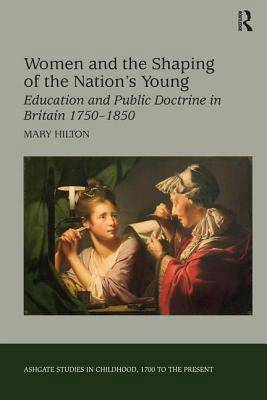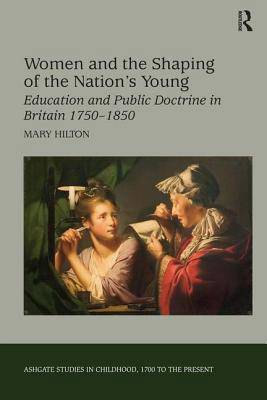
- Afhalen na 1 uur in een winkel met voorraad
- Gratis thuislevering in België vanaf € 30
- Ruim aanbod met 7 miljoen producten
- Afhalen na 1 uur in een winkel met voorraad
- Gratis thuislevering in België vanaf € 30
- Ruim aanbod met 7 miljoen producten
Zoeken
Women and the Shaping of the Nation's Young
Education and Public Doctrine in Britain 1750-1850
Mary Hilton
€ 343,45
+ 686 punten
Omschrijving
Mary Hilton addresses a neglected area in historical research by examining the educational writings of leading women moralists and activists, including Sarah Fielding, Hester Chapone, Sarah Trimmer, Maria Edgeworth, Jane Marcet, and Mary Carpenter. In connecting the young citizen, the family, and the local parish to wider social, religious, and political issues, these women moralists were highly influential in the public realm, spurring their many readers to action and reform.
Specificaties
Betrokkenen
- Auteur(s):
- Uitgeverij:
Inhoud
- Aantal bladzijden:
- 296
- Taal:
- Engels
- Reeks:
Eigenschappen
- Productcode (EAN):
- 9780754657903
- Verschijningsdatum:
- 28/04/2007
- Uitvoering:
- Hardcover
- Formaat:
- Genaaid
- Afmetingen:
- 156 mm x 234 mm
- Gewicht:
- 594 g

Alleen bij Standaard Boekhandel
+ 686 punten op je klantenkaart van Standaard Boekhandel
Beoordelingen
We publiceren alleen reviews die voldoen aan de voorwaarden voor reviews. Bekijk onze voorwaarden voor reviews.







